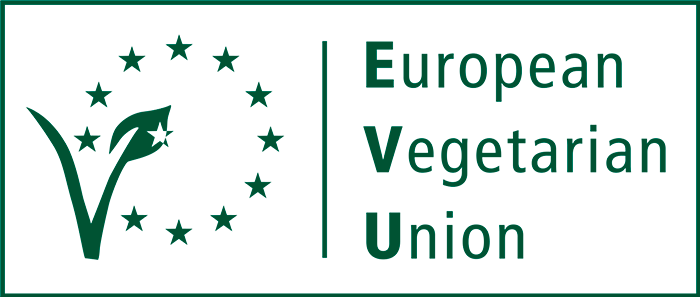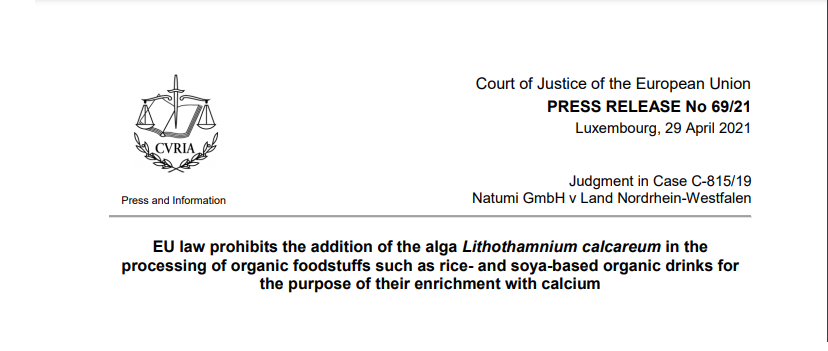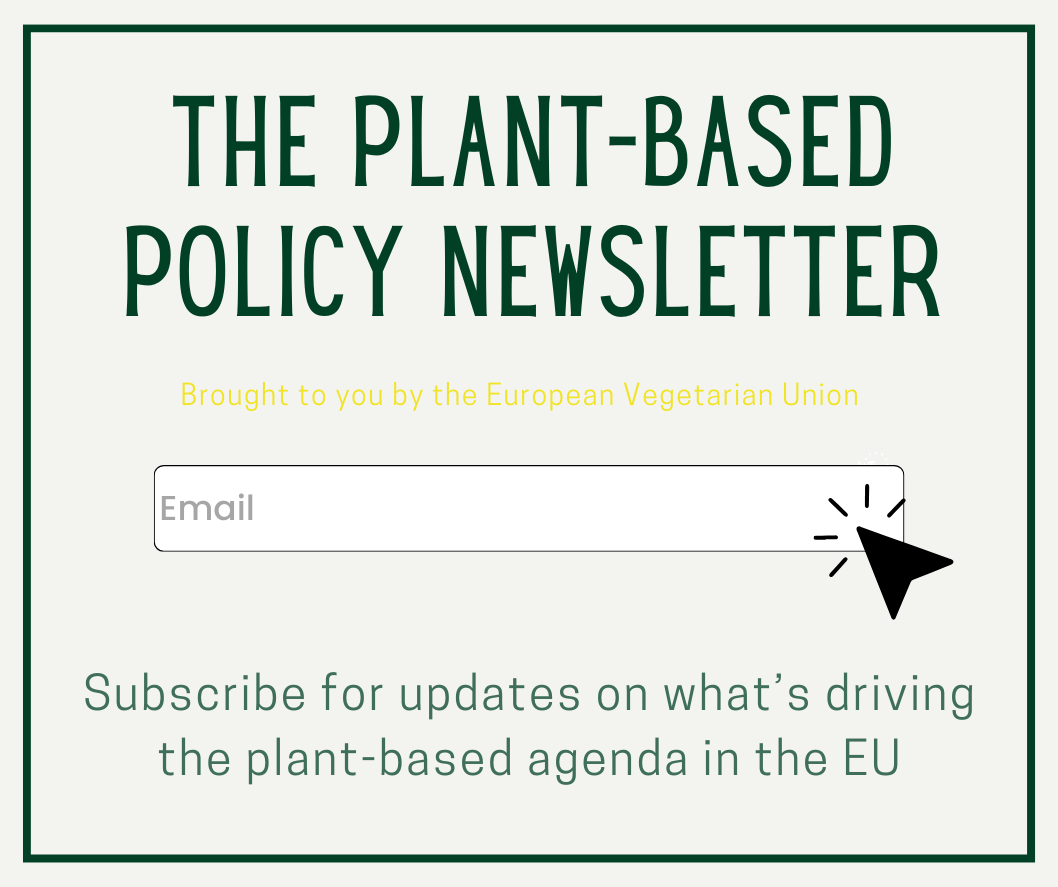Lithothamnium calcareum is used in the production of organic plant milks in order to make them a valuable source of calcium and thereby a viable alternative to cow’s milk. The algae are locally harvested – predominantly in France and Iceland – where sufficiently abundant stocks are available. The algae are simply washed, dried and ground without the use of further ingredients or additives.
Natumi was sued a while back for this practice and while national courts in Germany were ruling in favour of the company, the case finally ended up in front of the ECJ. The ECJ however ruled that the EU’s organic regulation does not allow the use of the calcium alga.
The ECJ press release reads:
“EU law prohibits the addition of the alga Lithothamnium calcareum in the processing of organic foodstuffs such as rice- and soya-based organic drinks for the purpose of their enrichment with calcium
By its judgment delivered today, the Court holds that EU law precludes the use of a powder obtained from the cleaned, dried and ground sediment of the alga Lithothamnium calcareum, as a non-organic ingredient of agricultural origin, in the processing of organic foodstuffs such as rice- and soya-based organic drinks for the purpose of their enrichment with calcium.
The use of a non-organic ingredient of agricultural origin in organic food is permitted only under certain conditions, in particular that it is impossible, without having recourse to that ingredient, to produce or preserve that food or to fulfil given dietary requirements provided for on the basis of EU legislation. It does not, however, appear that those are criteria are fulfilled in the case of the powder in question.
In addition, EU law lays down strict rules on the addition of minerals, such as calcium, in the production of organic food. As a rule, it excludes the use of calcium carbonate to enrich products with calcium, with the result that the addition of calcium in the processing of organic foodstuffs such as the rice- and soya-based drinks at issue, for the sole purpose of their enrichment with calcium, is prohibited. Consequently, authorising the use of the powder in question as a non-organic ingredient of agricultural origin in the processing of organic foodstuffs, in order to enrich them with calcium, would amount to permitting producers of those foodstuffs to circumvent that prohibition.”
EVU is very disappointed in this interpretation of the law and the neglected issues with regards to vegan and vegetarian diets. It is EVU’s stance that using Lithothamnium calcareum as an ingredient in organic plant-based milk alternatives and thereby increasing the drinks’ calcium content, should remain allowed. As the algae are used wholly in plant-based milk, it is not the same as adding extracted calcium carbonate and, therefore, we believe this practice is fit for organic products.
Europeans who wish not to consume cow’s milk, because of ethical or environmental concerns, but also those who cannot consume cow’s milk due to health-related reasons (allergies, intolerances), should not be discouraged from buying organic foods, by depriving them of an easy and viable way of covering their calcium intake.
The ECJ says “The use of a non-organic ingredient of agricultural origin in organic food is permitted only under certain conditions, in particular that it is impossible, without having recourse to that ingredient, to produce or preserve that food or to fulfil given dietary requirements provided for on the basis of EU legislation.” EVU is not aware of another method currently available that would have the same outcome and provide in a similar way an easily accessible calcium source for organic plant-based milk consumers. EVU therefore believes that once again vegan and vegetarian interests were not adequately considered.
The European Commission acknowledges in its “Green Deal”, which seeks to make Europe a more sustainable continent, that both organic and plant-based foods and diets should be promoted and increased. Therefore, it is vital to decrease obstacles for people to choose more sustainable foods. Furthermore, it states in the Farm to Fork Strategy: “It will also set out well-targeted support for the algae industry, as algae should become an important source of alternative protein for a sustainable food system and global food security.” If algae can provide other nutrients in a more sustainable way as well, it also deserves consideration and promotion.
Additionally, EVU believes that Europe’s vegans and vegetarians should have the same right to nutritious, healthy food as everyone else. Given their contribution to a more climate- and environment-friendly food system, it should not be made harder for them to find suitable foods for their dietary needs.
The impact of this ruling is uncertain at the moment. There is a high chance that calcium rich organic plant-based milks will disappear from the supermarket shelves soon. This could mean that consumers will be driven towards non-organic milk alternatives, which usually add calcium carbonate to their drinks. Another solution might be the organic certification of the algae, but legal certainty whether this would not be affected by the ruling is needed.


